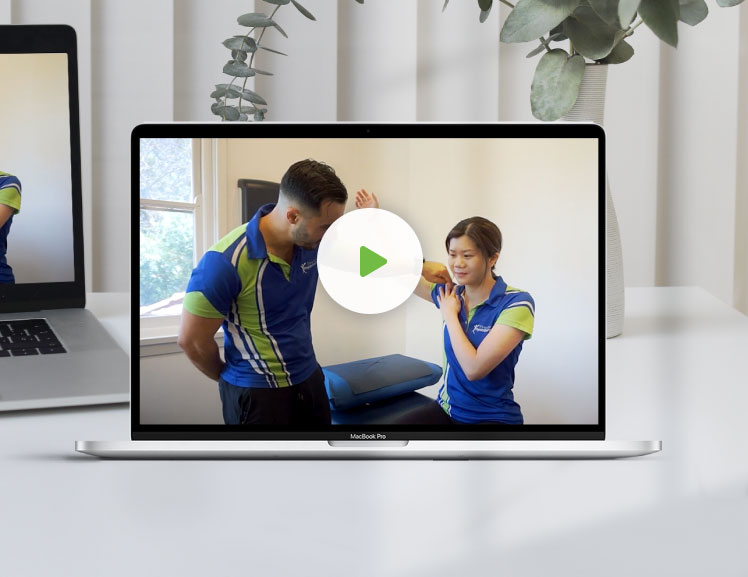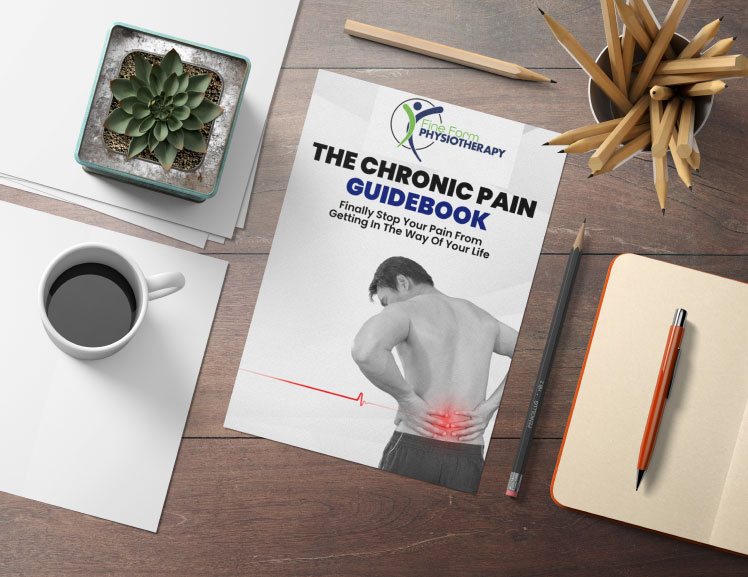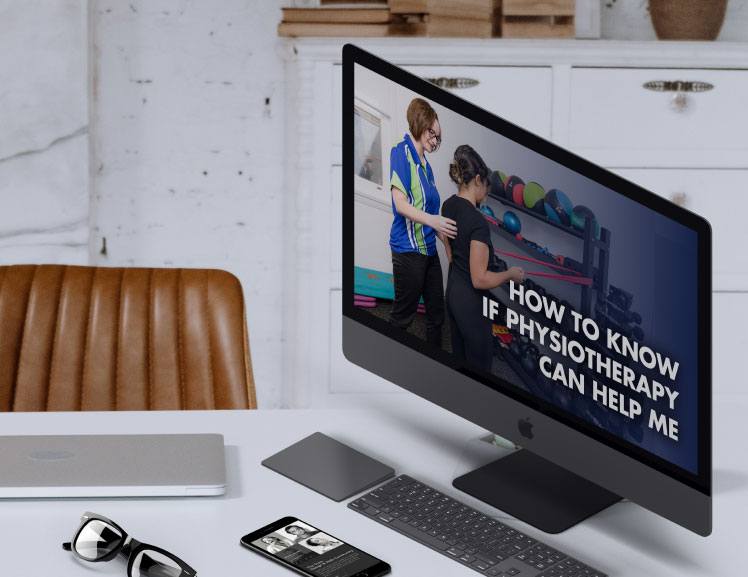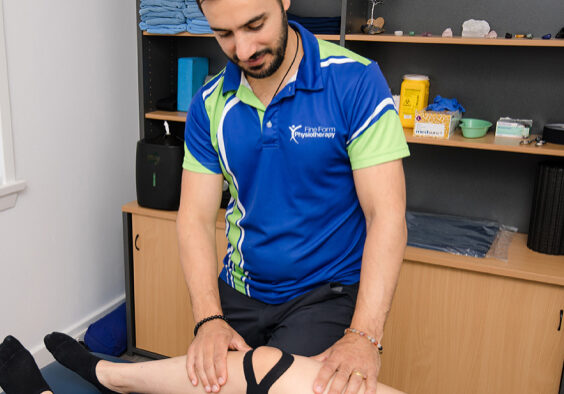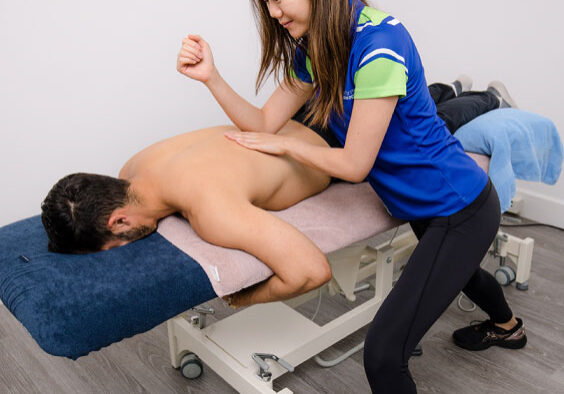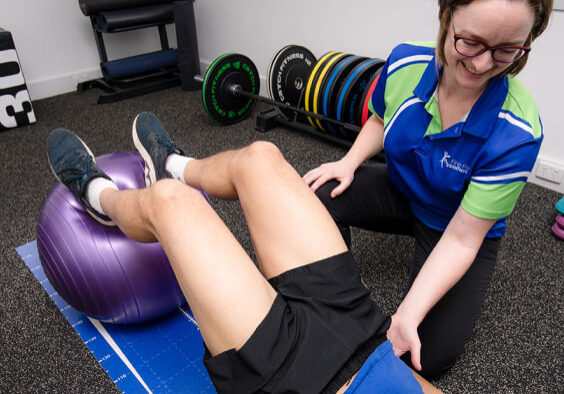Common Problems: 5 Common causes of Knee pain

This month at Fine Form Physio we take a look at Knee Pain.
Knee pain is a common complaint for people across different age groups. Our knees take us through our daily lives every step of the way, from walking to running, and from jumping to taking the stairs. The presence of knee pain can be debilitating, but fear not as physiotherapists are here to help! Here are 5 of the common causes of knee pain:
1. Knee meniscus and ligament tears
Injuries of the medial meniscus, anterior cruciate ligament (ACL) and medial collateral ligament (MCL) are often caused by forceful knee twisting and pivoting while the foot is planted on the ground. Degenerative changes of the knee as we age can also contribute to a torn meniscus with little or no trauma. Common symptoms of these injuries include: pain deep or on the inside of the knee, swelling and a feeling of instability as if the knee may buckle or give way. Physiotherapists are experienced in diagnosing and rehabilitating meniscal and ligament tears. If indicated, you may be referred for an MRI to investigate the extent of these tears.
2. Patellofemoral pain syndrome
Patellofemoral pain syndrome, also known as ‘runner’s knee’, is often felt as a deep pain at in front of the knee especially during running, walking up and down stairs, sitting for long periods or squatting. It is often due to poor tracking of the kneecap within its groove in knee joint due to muscle overuse, imbalance, weakness, poor knee alignment and trauma to the knee joint. Treatment by our physiotherapists generally includes massaging tight muscles contributing to your knee problem, improving flexibility, strengthening the inner quads and glutes, and guiding you to return to optimal techniques in squatting, jumping and running.
3. Patellar tendinopathy
Patellar tendinopathy is an overuse injury caused by repetitive movements. Vigorous running, jumping or a sudden change in activity may overstress the tendon in front of your knee. In addition, increased tightness and muscle imbalances of your thigh muscles pull on and irritate the patellar tendon. Chronic illnesses such as diabetes, autoimmune diseases and kidney failure also subject you to a higher likelihood of tendon problems. Our physiotherapists are experienced in identifying tendon pathologies, and will prescribe you with an individualised progressive tendon loading programme to tackle tendon-related pain.
4. Patellar Fracture
A common fracture site for the knee is the patella, which is caused by high energy trauma such as falling on the kneecap. Symptoms of a fractured patella may include severe pain, bruising, swelling at the point of the knee, and an inability to bend or straighten the knee. If a fracture is suspected, our physiotherapists will refer you for an X-ray or CT scan to identify the location and severity of the fracture. The treatment options for a patellar fracture depends on the stability of the fracture. For stable patella fractures, the knee is placed in an extension splint while the fracture heals. For unstable fractures, you may require surgery by an orthopaedic doctor.
5. Knee osteoarthritis (Knee OA)
Osteoarthritis of the knee is causes thinning and disruption of the cartilage in the knee joints, which usually occurs after the age of 50. Risk factors for knee osteoarthritis include obesity, previous injury to the joint and suboptimal alignment of the knee. Common symptoms of knee osteoarthritis are pain, morning stiffness, loss of knee range of movement and joint enlargement. Contrary to common belief, not everyone with knee OA gets knee pain, in fact studies show that only 15% of patients who has knee osteoarthritis on X-rays actually have pain. The good news is that research shows that knee problems related to osteoarthritis can be significantly improved with physio-guided strengthening exercises. At Fine Form Physiotherapy, we also offer Pilates as a gentle yet effective way to maintain the long-term health of your knee joints.
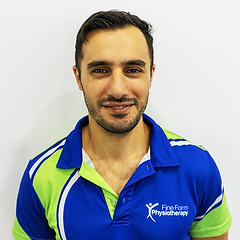
A highly successful physiotherapist with 14 years experience. He has a passion for caring and helping everyone in the community. Ken’s love for his community has seen him work with elite and professional athletes as well as being head physiotherapist for local soccer and rugby clubs and Ryde Little Athletics. He has a postgraduate certificate in Sports Physiotherapy. He is currently studying a Bachelor of Psychology – intending to specialise in chronic pain management, sports psychology, addiction, stress, anxiety and depression. Ken is passionate about athletics and specialises in sprinting and long jump. He can be seen not only on the local athletic tracks but pop in and see him at our amazing Sports Performance Studio also. In his spare time Ken enjoys running, strength training, meditation and reading. He also has three young children to keep him busy.
